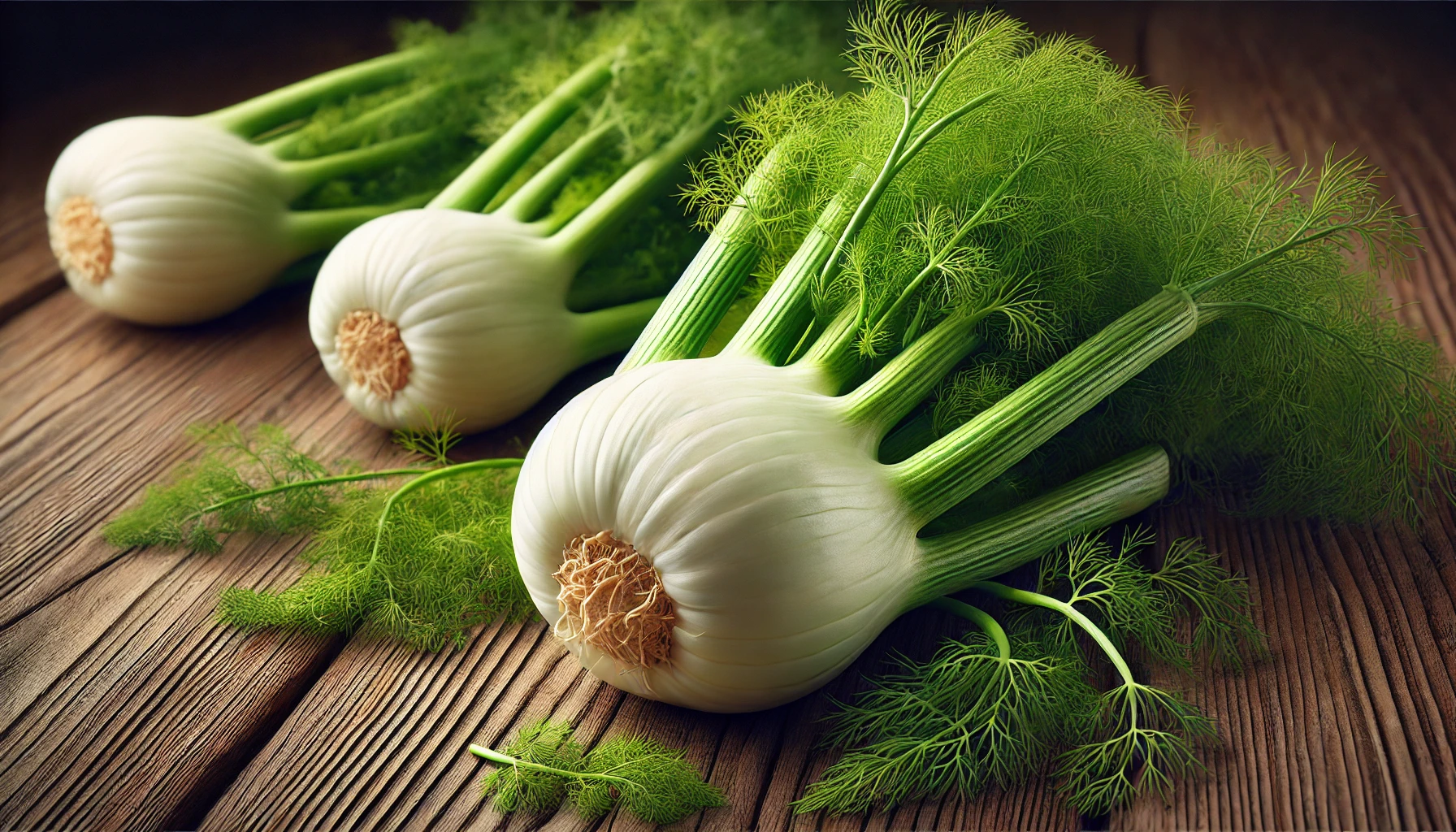This post was written with Consensus AI Academic Search Engine – please read our Disclaimer at the end of this article. Fennel (Foeniculum vulgare Mill.) is a versatile herb known for its culinary and medicinal uses. It has been utilized for centuries in various cultures for its unique flavor and potential health benefits. This article explores the health benefits, nutrient profile, and some delicious recipes incorporating fennel.
Health Benefits of Fennel
Improvement of Hypercholesterolemia and Liver Functions
A pilot study demonstrated that cookies enriched with anethole and secoisolariciresinol diglucoside (SDG) from fennel seeds significantly improved lipid profiles and liver functions in hyperlipidemic patients. The intervention group showed a notable reduction in total cholesterol, triglycerides, and LDL levels, along with an increase in HDL levels. Additionally, liver enzyme levels showed minor improvements, indicating potential hepatoprotective effects1.
Management of Insulin Resistance in PCOS
Fennel supplementation, when combined with a high-protein, low-carbohydrate diet, was found to improve insulin resistance and body composition in overweight/obese women with polycystic ovary syndrome (PCOS). The study revealed significant reductions in fasting insulin levels and HOMA-IR indices, suggesting fennel’s role in managing insulin resistance2.
Alleviation of Menopausal Symptoms
A randomized, triple-blind, placebo-controlled trial assessed the efficacy of fennel in reducing menopausal symptoms. The results indicated that fennel significantly decreased the severity of menopausal symptoms, as measured by the Menopause Rating Scale (MRS), without serious side effects. This suggests that fennel can be a safe and effective treatment for menopausal symptoms3.
Enhancement of Poultry Health
In poultry production, dietary supplementation with fennel seed powder improved various health parameters in broilers. The study found that fennel supplementation enhanced carcass traits, intestinal morphology, and nutrient digestibility, promoting overall growth and development in broilers4.
Cardiovascular and Hepatoprotective Effects
Research on dyslipidemic rats showed that volatile oils (VOs) of fennel, both in their original and nano-forms, improved cardiovascular and liver health. The treatment groups exhibited better lipid profiles, reduced oxidative stress, and lower inflammatory biomarkers. These findings highlight fennel’s potential in managing dyslipidemia and protecting against cardiovascular diseases5.
Nutrient Profile
Fennel is rich in various nutrients, including:
- Vitamins: Vitamin C, Vitamin A, and several B vitamins.
- Minerals: Potassium, calcium, magnesium, and iron.
- Phytonutrients: Anethole, fenchone, and estragole, which contribute to its therapeutic properties.
Recipes
Fennel and Orange Salad
Ingredients:
- 1 large fennel bulb, thinly sliced
- 2 oranges, segmented
- 1 tablespoon olive oil
- 1 tablespoon lemon juice
- Salt and pepper to taste
- Fresh dill for garnish
Instructions:
- In a large bowl, combine the sliced fennel and orange segments.
- Drizzle with olive oil and lemon juice.
- Season with salt and pepper.
- Toss gently to combine and garnish with fresh dill.
Roasted Fennel
Ingredients:
- 2 large fennel bulbs, cut into wedges
- 2 tablespoons olive oil
- Salt and pepper to taste
- 1 teaspoon fennel seeds (optional)
Instructions:
- Preheat the oven to 400°F (200°C).
- Place the fennel wedges on a baking sheet.
- Drizzle with olive oil and season with salt, pepper, and fennel seeds.
- Roast for 25-30 minutes, until the fennel is tender and caramelized.
Fennel Tea
Ingredients:
- 1 teaspoon fennel seeds
- 1 cup boiling water
- Honey or lemon (optional)
Instructions:
- Crush the fennel seeds slightly to release their oils.
- Place the seeds in a cup and pour boiling water over them.
- Let steep for 5-10 minutes.
- Strain and sweeten with honey or lemon if desired.
Conclusion
Fennel is a nutrient-dense herb with a wide range of health benefits, from improving lipid profiles and liver functions to managing insulin resistance and alleviating menopausal symptoms. Its versatility in culinary applications makes it a valuable addition to any diet. Incorporating fennel into your meals can enhance both flavor and health.
Disclaimer
The content presented in this blog is generated by Consensus, an AI-powered academic search engine, and is based on publicly available scientific literature. While every effort is made to provide accurate, up-to-date, and well-researched information, the content is intended for informational and educational purposes only. It does not constitute medical advice, diagnosis, or treatment. Always consult a qualified healthcare professional before making any decisions regarding medical conditions, treatments, or medications. The AI system’s analysis may not cover all perspectives, emerging research, or individual cases, and it is not a substitute for professional expertise. Neither the blog publisher nor the developers of the AI-powered search engine are responsible for any actions taken based on the information provided in this content. Use of this information is at your own risk. Citations to the original scientific studies are included for reference, but these studies should be reviewed in full and interpreted with the guidance of a healthcare or research professional.
If you are experiencing a medical emergency, please seek immediate attention from a healthcare provider.
